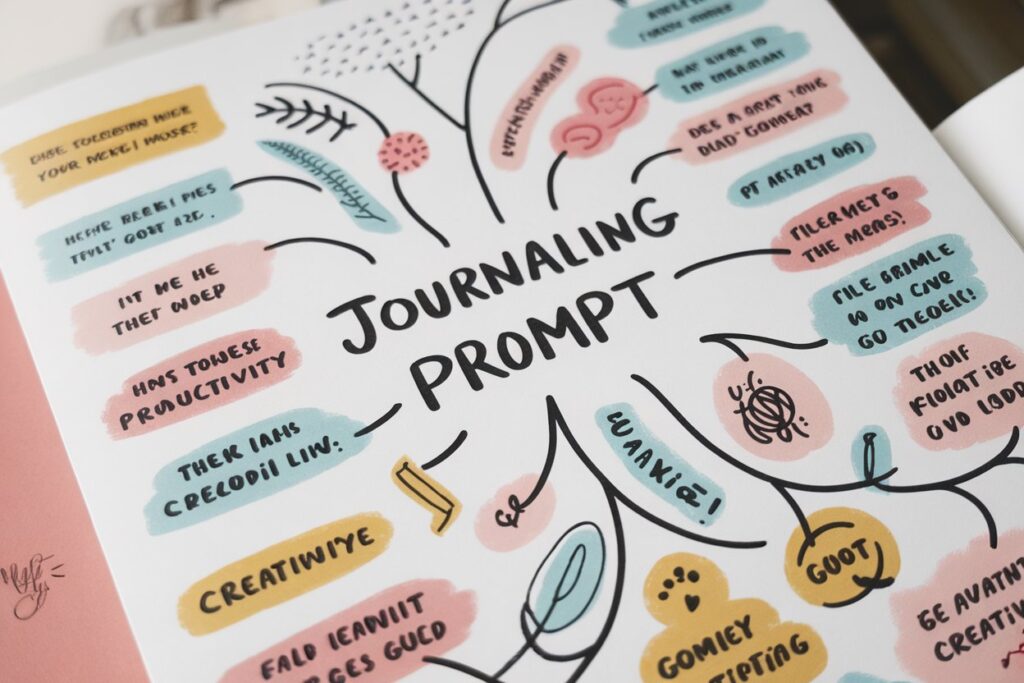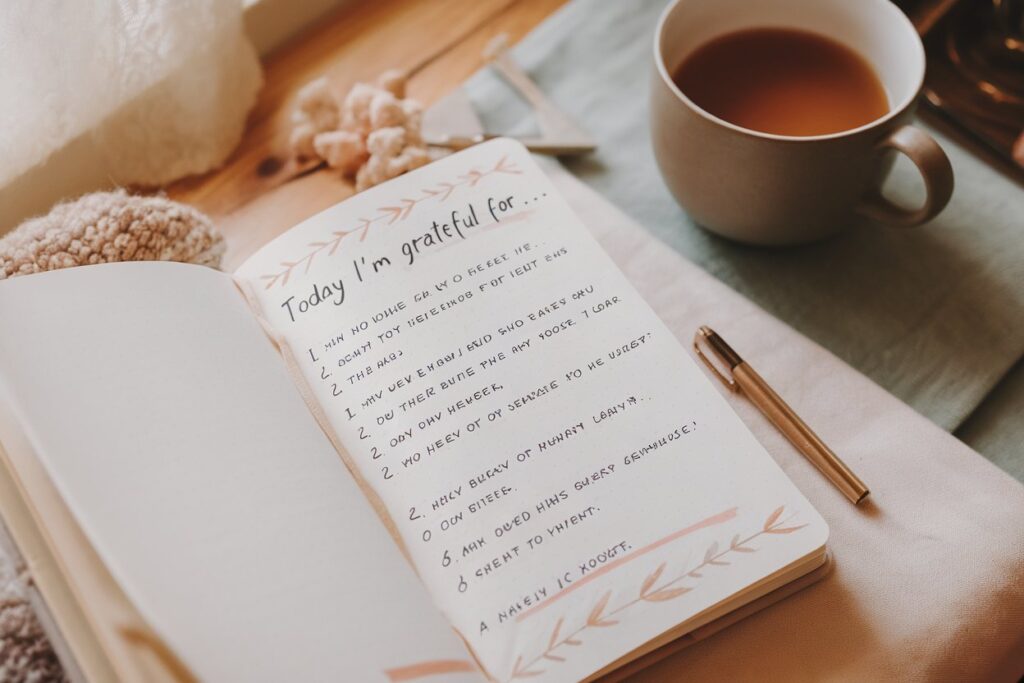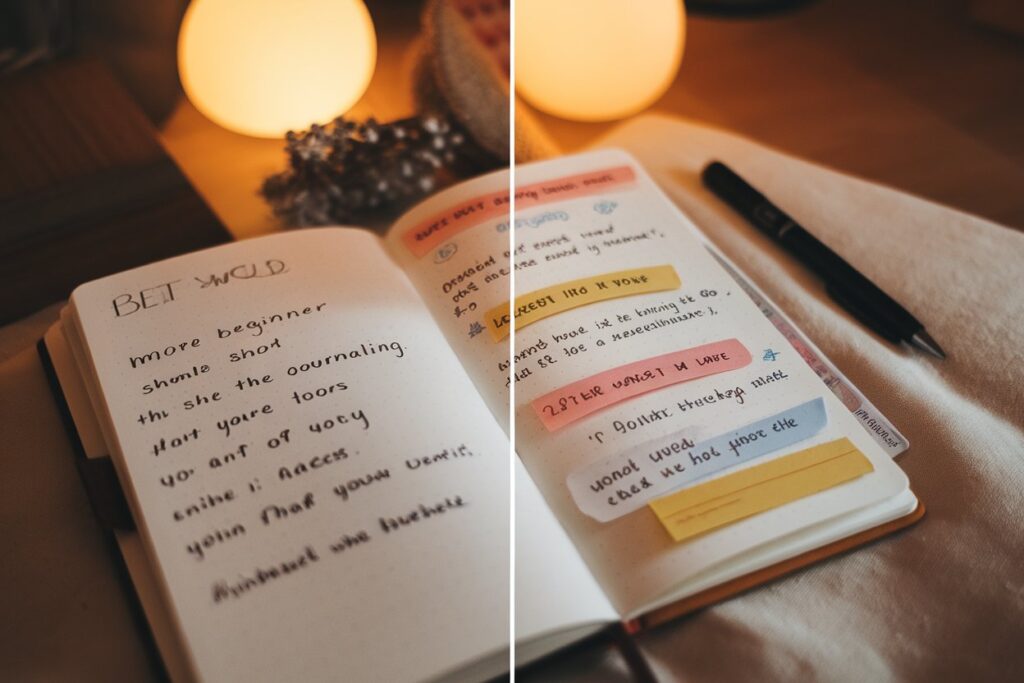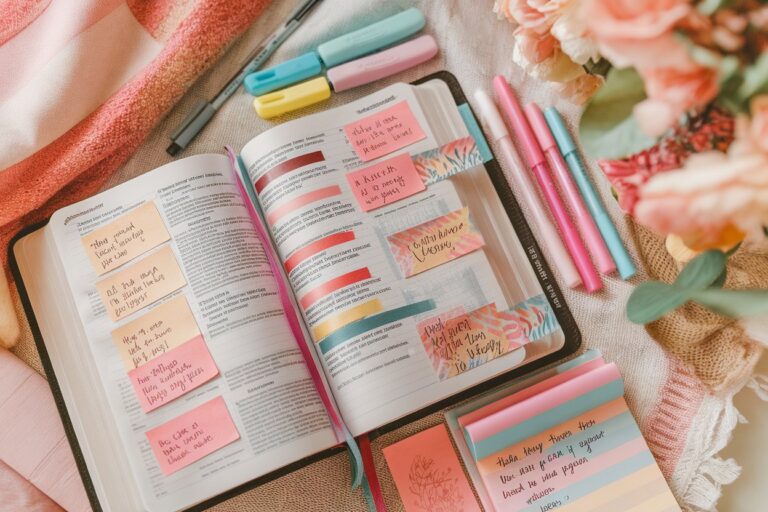Discover 50+ daily journaling prompts for beginners to reduce stress, boost creativity, and achieve personal growth. Start your journaling journey today!
Table of Contents
- Introduction
- What Are Journaling Prompts and Why Use Them?
- Getting Started: Essential Tips for Beginner Journalers
- 50 Daily Journaling Prompts for Beginners
- Specialized Journaling Techniques for Beginners
- Common Journaling Challenges and Solutions
- Journaling for Specific Goals
- Tools and Resources for Journaling Success
- Establishing a Sustainable Journaling Habit
- Frequently Asked Questions About Journaling Prompts
- What are journaling prompts?
- How do I start journaling?
- What are the benefits of using journaling prompts?
- Can journaling prompts help with stress relief?
- How often should I use journaling prompts?
- Are journaling prompts suitable for beginners?
- Can I create my journaling prompts?
- How do journaling prompts aid in personal growth?
- What types of journaling prompts are there?
- Can journaling prompts improve creativity?
- Conclusion: Your Journaling Journey Begins Now
Introduction
A blank page can be intimidating. I still remember staring at my first journal, pen hovering uncertainly above the pristine paper, wondering what on earth I should write. If you’ve ever felt that same hesitation, you’re not alone.
Journaling has transformed my life in ways I never expected, helping me process emotions, clarify goals, and discover parts of myself I didn’t know existed. But getting started? That’s often the hardest part.
That’s where journaling prompts come in—these simple questions and ideas serve as your compass in the vast sea of potential topics. For beginners especially, prompts provide structure and direction when you’re not sure where to begin.
In this guide, I’ll share a comprehensive collection of daily journaling prompts designed specifically for newcomers to the practice. Whether you’re looking to reduce stress, boost creativity, or simply develop a consistent writing habit, you’ll find prompts that resonate with your personal journey.
What Are Journaling Prompts and Why Use Them?
Journaling prompts are guided questions, statements, or ideas that inspire writing in your personal journal. Think of them as conversation starters for the dialogue between you and your journal.
Benefits of Using Journaling Prompts
Journaling prompts offer numerous advantages, particularly for those just starting their journaling journey:
- Overcome writer’s block: Eliminate the intimidation of a blank page
- Create consistency: Establish a regular journaling routine
- Provide structure: Offer direction when you’re unsure what to write
- Encourage exploration: Prompt deeper thinking about yourself and your experiences
- Spark creativity: Inspire new perspectives and ideas
- Promote self-discovery: Reveal insights about yourself you might not otherwise access
As one beginner journaler told me, “Prompts were like training wheels for my journaling practice. Once I got comfortable, I could either use them or write freely—but they were always there when I needed inspiration.”
Getting Started: Essential Tips for Beginner Journalers

Before diving into specific prompts, let’s cover some fundamentals to help you establish a successful journaling practice.
Choosing Your Journal
Your journal is your companion on this journey, so choose one that feels right for you.
- Physical journals: Many people enjoy the tactile experience of pen on paper. The Leuchtturm1917 Notebook and Moleskine Journal are popular high-quality options.
- Digital journals: Apps like Day One offer convenience, searchability, and even built-in prompts.

Creating a Journaling Routine
Consistency is key to experiencing the benefits of journaling:
- Set a specific time: Morning pages upon waking or evening reflection before bed are popular options
- Start small: Begin with just 5-10 minutes daily
- Create a pleasant environment: Find a quiet, comfortable space
- Remove distractions: Put your phone on silent (unless you’re using it to journal)
- Be forgiving: If you miss a day, simply start again without judgment
How to Use Journaling Prompts Effectively
To get the most out of prompts, try these approaches:
- Read the prompt and reflect: Take a moment to consider your thoughts before writing
- Write without editing: Let your thoughts flow without worrying about grammar or structure
- Set a timer: Writing for a specific duration (e.g., 10 minutes) can help maintain focus
- Be honest: Your journal is private—allow yourself complete authenticity
- Follow tangents: If the prompt leads you somewhere unexpected, follow that path

50 Daily Journaling Prompts for Beginners
Now for the heart of this guide—a collection of thoughtfully curated prompts designed specifically for those new to journaling. I’ve organized them into categories to help you find prompts that match your mood or goals for the day.
Self-Discovery Prompts
- What three words would you use to describe yourself, and why?
- What makes you feel truly alive?
- What are five things you’re grateful for today?
- What is one thing you wish others knew about you?
- Describe a personal strength you’re proud of and how it helps you.
- What are your top five values, and how do they guide your decisions?
- What childhood experience has shaped who you are today?
- If you could change one thing about yourself, what would it be and why?
- What does success mean to you personally?
- What are you most afraid of, and why?
Mindfulness and Present Moment Prompts
- Describe five things you can see, four things you can touch, three things you can hear, two things you can smell, and one thing you can taste right now.
- What is something beautiful you noticed today that others might have missed?
- Describe your current emotional state without using the words “good,” “bad,” “fine,” or “okay.”
- What sensations are you feeling in your body right now?
- What is one small moment from today that you want to remember?
- What are you looking forward to in the next 24 hours?
- What’s one thing you could do right now to make this moment better?
- Describe the weather today and how it affects your mood.
- What sounds can you hear right now? How do they make you feel?
- If you had to describe your day as a color, what would it be and why?
Goal Setting and Personal Growth Prompts
- What is one small goal you can accomplish today?
- Where do you see yourself one year from now?
- What habit would you like to develop, and what small step could you take today?
- What is something you’ve always wanted to learn? What’s stopping you?
- Describe your ideal day from morning to night.
- What three things could you do this week to move closer to a long-term goal?
- What is one thing you’re putting off? Why are you procrastinating on it?
- How would you define success in your personal life?
- What skill would you like to master, and why?
- What would you do if you knew you couldn’t fail?
Emotional Wellness Prompts
- What made you smile today?
- Describe a challenge you’re facing right now. What would make it easier?
- When was the last time you felt truly peaceful? Describe that moment.
- What are three things that trigger stress for you, and how could you respond differently?
- Write a letter to someone you need to forgive (you don’t have to send it).
- What brings you comfort when you’re feeling down?
- What’s something difficult you’ve overcome, and how did that experience change you?
- What emotions have you experienced today? What caused them?
- What would you tell your younger self about handling difficult emotions?
- Write about something that’s bothering you, then list three possible solutions.
Creativity and Exploration Prompts
- If you could live anywhere in the world, where would it be and why?
- Write a six-word story about your day.
- If your life were a book, what would this chapter be called?
- Describe your perfect day off with no limitations.
- What superpower would you choose, and how would you use it?
- If you could have dinner with anyone, living or dead, who would it be and what would you ask them?
- Write from the perspective of an object in your room.
- What’s a meaningful quote that resonates with you? Why does it matter to you?
- If you could solve one global problem, what would it be and why?
- Imagine your life as a movie. Who would play you, and what would the plot be?

Specialized Journaling Techniques for Beginners
Beyond basic prompts, these specialized journaling techniques can add variety to your practice.
Gratitude Journaling
Focusing on gratitude has been shown to increase happiness and reduce depression. Try these gratitude journal prompts:
- What made you smile today?
- Who is someone you’re grateful to have in your life, and why?
- What’s something you take for granted that you’re actually thankful for?
- What’s a challenge you’re facing that’s actually teaching you something valuable?
- What’s something about your body or health that you appreciate?
Morning Pages
Popularized by Julia Cameron in “The Artist’s Way,” morning pages involve writing three pages of stream-of-consciousness thoughts first thing in the morning. This practice helps clear your mind and tap into creativity.
Bullet Journaling
For those who prefer structure, bullet journaling combines planning, tracking, and reflective journaling. Use symbols (bullets, dashes, etc.) to organize information quickly. The Leuchtturm1917 Notebook works beautifully for this method.

Prompted Art Journaling
Combine writing with visual elements like sketches, collages, or watercolors. The Kuretake Gansai Tambi Watercolors and Tombow Dual Tip Pens are excellent for this approach.
Try these art journal prompts:
- Illustrate your current mood with colors and shapes
- Create a visual representation of a goal
- Combine a meaningful quote with related imagery
Common Journaling Challenges and Solutions
Even with prompts, you might encounter roadblocks in your journaling journey. Here’s how to overcome them:
“I don’t have time to journal.”
Solution: Start with just 5 minutes daily. Try the Five-Minute Journal, which is designed for busy people.
“I’m afraid someone will read my journal.”
Solution: Consider a digital journal with password protection like Day One, or keep your physical journal in a secure location.
“I don’t know what to write about.”
Solution: That’s exactly what this list of prompts is for! Start with whatever resonates with you today.
“I’m not a good writer.”
Solution: Remember, your journal is for your eyes only. Let go of perfectionism and focus on expression rather than grammar or eloquence.
“I start but can’t maintain the habit.”
Solution: Pair journaling with an existing habit (like morning coffee), use a habit tracker, or find an accountability partner.
Journaling for Specific Goals
Journaling isn’t one-size-fits-all. Here’s how to tailor your practice to specific objectives.
Journaling for Stress Relief
Research shows that expressive writing can reduce stress and anxiety. Focus on these approaches:
- Emotional release: Write about what’s bothering you without judgment
- Gratitude focus: List positives to reframe your perspective
- Solution-oriented: Brainstorm ways to address stressors
Stress-Relief Prompt: What’s causing you stress right now? After writing about it, take three deep breaths and write about potential solutions or coping strategies.
Journaling for Personal Growth
Use your journal to track development and set intentions:
- Regular self-assessment: Review progress toward goals
- Identification of patterns: Notice recurring themes in your behavior
- Accountability: Document commitments and follow-through
Growth Prompt: What’s one area of your life where you’d like to see improvement? What small step could you take tomorrow to progress in this area?
Journaling for Creativity
Your journal can be a sandbox for creative exploration:
- Free writing: Write without stopping for 10 minutes
- Perspective shifts: Write from different viewpoints
- “What if” scenarios: Explore possibilities without limitations
Creativity Prompt: Choose an ordinary object in your room and write a short story where it plays a central role.

Tools and Resources for Journaling Success
The right tools can enhance your journaling experience significantly.
Recommended Journals
| Journal Type | Recommendation | Best For |
|---|---|---|
| Classic Notebook | Moleskine Journal | Traditional journaling |
| Dot Grid | Leuchtturm1917 | Bullet journaling |
| Guided Structure | The Five Minute Journal | Beginners who want structure |
| Watercolor | Midori MD Notebook | Art journaling |
| Digital | Day One App | The Five-Minute Journal |
Writing Instruments
The tactile experience matters. Consider these options:
- For smooth writing: Pilot G2 Pens or Uni-ball Jetstream
- For artistic expression: Sakura Gelly Roll Pens or Faber-Castell Pitt Artist Pens
- For color variety: Prismacolor Colored Pencils
Prompt Books and Resources
When you’re ready to explore beyond this guide:
- A Year of Creative Writing Prompts
- 365 Prompts for 365 Days
- The Beautiful Book of Songwriting Prompts

Establishing a Sustainable Journaling Habit
Starting is one thing; maintaining your practice is another. Here’s how to make journaling stick:
The 21-Day Challenge
Commit to using one prompt daily for 21 days straight. This timeframe helps establish a habit, according to many habit formation experts. Mark your calendar or use a tracking app to monitor your streak.
Creating a Journaling Ritual
Rituals enhance motivation and enjoyment:
- Choose a special spot for journaling
- Begin with a minute of mindful breathing
- Make a cup of tea or coffee to enjoy while writing
- Play soft background music if it helps you focus
- Light a candle or use an essential oil diffuser to create ambiance
Tracking Your Progress
Review your journal periodically to observe patterns, growth, and insights. Every month, read through your entries and note recurring themes or changes in your perspective.
Frequently Asked Questions About Journaling Prompts
What are journaling prompts?
Journaling prompts are questions, ideas, or statements that inspire writing in a personal journal. They provide direction and inspiration, especially helpful when you’re unsure what to write about.
How do I start journaling?
Start by choosing a journal that appeals to you, select a prompt that resonates with your current mood or goals, set aside 5-10 minutes in a quiet space, and begin writing without worrying about perfect grammar or structure.
What are the benefits of using journaling prompts?
Prompts provide inspiration and structure and help maintain consistency in journaling. They guide exploration of thoughts and feelings, make journaling less intimidating for beginners, and can lead to unexpected insights.
Can journaling prompts help with stress relief?
Yes, journaling can significantly help manage stress by providing a safe outlet for expressing emotions. Writing about stressors has been shown to reduce their psychological impact and help develop perspective.
How often should I use journaling prompts?
Use prompts as often as needed, whether daily to establish a routine or occasionally when you’re feeling uninspired. There’s no right or wrong frequency—some people use prompts every day, while others use them only when they need inspiration.
Are journaling prompts suitable for beginners?
Yes, prompts are especially helpful for beginners who might feel intimidated by a blank page. They provide structure and direction, making the journaling process more approachable for newcomers.
Can I create my journaling prompts?
Absolutely! Creating personalized prompts tailored to your interests, goals, and life circumstances can make your journaling practice more relevant and meaningful. Try adapting prompts you find elsewhere or creating entirely new ones based on areas of your life you want to explore.
How do journaling prompts aid in personal growth?
Prompts help explore thoughts, emotions, and experiences in a structured way, leading to greater self-awareness and personal insight. They can reveal patterns in your thinking and behavior, clarify values and goals, and track progress over time.
What types of journaling prompts are there?
There are numerous types, including daily reflection prompts, gratitude prompts, creative writing prompts, self-discovery prompts, goal-setting prompts, mindfulness prompts, emotional wellness prompts, and relationship prompts, among others.
Can journaling prompts improve creativity?
Yes, creative prompts can inspire imagination and artistic expression by encouraging you to think beyond your usual patterns. They can help overcome creative blocks and explore new ideas in a low-pressure environment.

Conclusion: Your Journaling Journey Begins Now
The journey of a thousand pages begins with a single prompt. As you embark on this path of self-discovery through journaling, remember that there’s no right or wrong way to respond to these prompts. Your journal is a judgment-free zone where your authentic self can emerge.
Start today with just one prompt that speaks to you. Write for five minutes. Tomorrow, try another. Before long, you’ll have established a practice that contributes meaningfully to your well-being, creativity, and personal growth.
Remember that journaling, like any worthwhile endeavor, evolves with time. The prompts that resonate with you today may differ from those that inspire you months from now. That’s not just okay—it’s evidence of your growth.
I’d love to hear about your journaling journey. Which prompts resonated most with you? What discoveries have you made about yourself through writing? Share your experiences in the comments below, or reach out on social media.
Here’s to the blank pages waiting to be filled with your thoughts, dreams, and discoveries.




